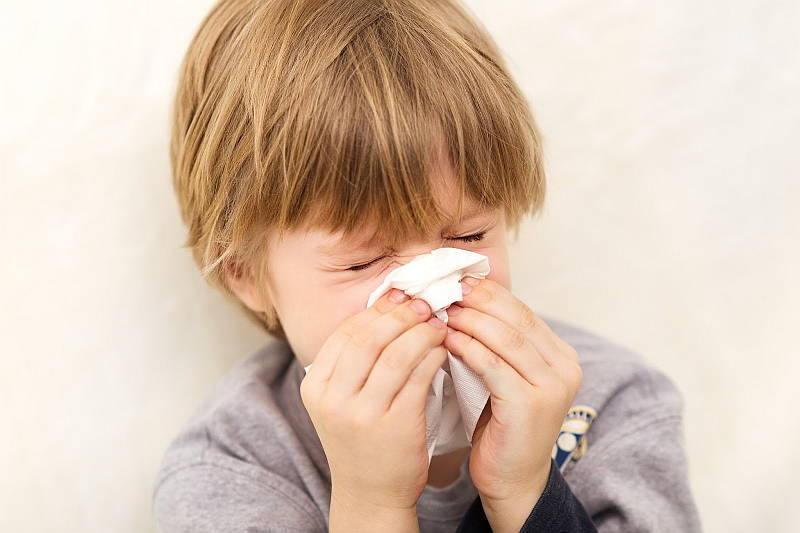
If your child is suffering from sinusitis, this is a very treatable condition with effective medical interventions routinely available.
Let’s start by taking a look at what sinusitis is, why it is somewhat different in children than it is in adults and what can be done about it if it proves to be a persistent problem for your child.
What is sinusitis?
Sinusitis is an infection of the sinuses. To give a short summation of how it occurs, the sinuses – not all of which are fully formed in young children – become blocked due to infection or for another reason and cannot drain properly. They fill with fluid and air and, as neither can drain from the sinuses, bacteria start to multiply and an infection results.
Let’s take a more detailed look to get an idea what might be going on.
Sinusitis and growing children
Adults have fully developed sinuses but, in children, only the maxillary sinuses, which are located behind the cheek, and the ethmoid sinuses, which are located behind the eyes, are present. All sinuses drain into the nose. When they are open and functioning correctly, they allow air to pass through them and provide easy breathing. However, when an infection is present, discharge can block the sinuses fully, preventing any drainage at all from occurring.
If your child is suffering from sinusitis, you may have noticed that they experience pain when they touch their cheeks. This is because of the pressure in the sinus. They also may experience a runny nose, a low-grade fever, feel very tired and being in an extremely bad mood. While adults experience all of these symptoms when they have sinusitis, the symptoms can be somewhat worse in children.
One of the reasons that children tend to get sinusitis more often than adults is simply because they are more prone to getting infections that affect the upper respiratory system. These often signal the onset of a bout of sinusitis. Children with allergies may also be more prone to sinusitis.
Treatment
There are very effective treatments available for sinusitis. Some of them are preventive and you can play a role in helping your child to avoid what specialists sometimes referred to quite aptly as a sinus attack.
Here are some things you can do:
- Remove any known allergens from the child’s environment.
- Use a humidifier during the winter or constantly if you live in a dry climate
- Avoid having your child around other children who have colds or other infections
- Teach your child basic hand washing to reduce the risk of contracting a cold
If your child continues to get sinus infections, your ENT specialist may prescribe antibiotics which can be very effective treatment option. If your child has chronic sinus infections, which means they keep coming back several times a year. In this situation your specialist may recommend a surgical procedure. This is done with an endoscope and involves opening up the sinus passages so that fluid and air can drain properly. It can be intimidating for a child, but it can also provide very effective relief from sinusitis.
If your child always seems to have a sniffle, low-grade fevers and generally seems to recover from colds very slowly, have them visit an ear, nose and throat specialist, who will be able to diagnose the cause of the problem. Diagnostic procedures for sinusitis are very accurate and the procedures are very effective, so there’s no reason for a child to suffer.
If you have questions about sinusitis, contact your local doctor who will arrange for you see an ear nose throat surgeon.
For more information about sinusitis and sinus surgery click here.



